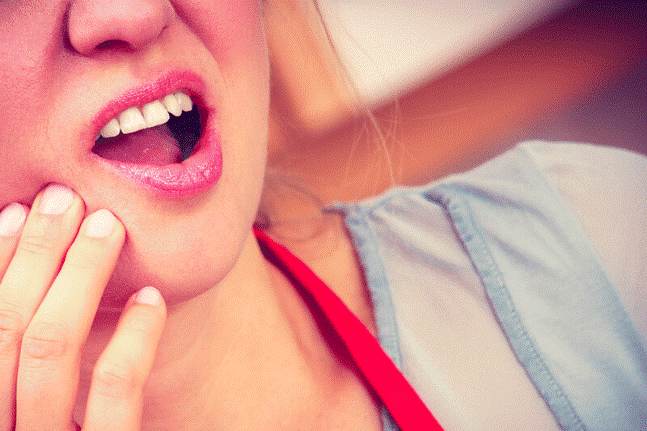Have you got jaw pain?
Your temporomandibular joint (TMJ) on the sides of your face allows your jaw to move up and down and side to side, so you can talk, chew, and yawn.Problems with your jaw and the muscles that control it are known as temporomandibular disorders (TMD).
What causes TMD?

- Direct injury to your jaw, head or face
- Stress, which can lead to teeth grinding or clenching. This puts a lot ofpressure on the joint.
- Wear and tear of the joint
- An uneven bite
What are the symptoms of TMD?
- Pain in your face, ear, neck and/or shoulders, when you chew, speak, or open your mouth wide
- Locking of the jaw in a particular position
- A headache around your temples
- Clicking, popping, or grating sounds in the jaw joint when you open/close your mouth or chew.
- A tired feeling in your face
- Trouble chewing or an uncomfortable bite
- Swelling on the side of your face
What can you do to relieve symptoms of TMD?
- Avoid grinding/clenching your jaw – Keep your teeth slightly apart as often as you can. This will relieve pressure on your jaw. Dentists may assist in providing advice and management for this.
- Avoid opening your mouth wide
- Practice good neck and shoulder posture. For example, avoid resting your chin on your hand or the phone between your shoulder and ear.
- Learn relaxation techniques to help loosen up your jaw
- Physiotherapists can assist in treating this condition by performing manual therapy on the muscles and joints surrounding the temporomandibular joint and neck.
- Dry needling can also be a helpful treatment tool for this condition.
If you would like to book a physio appointment for assessment and treatment of your jaw pain, call us on 8555 4099 or BOOK ONLINE.


